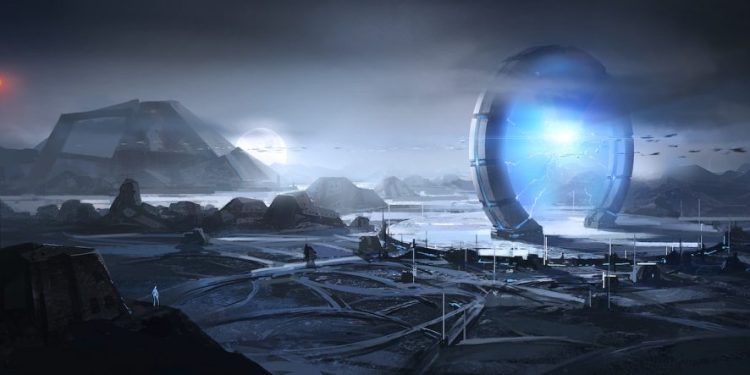Throughout history, Earth has been home to many civilizations. Many of them have left a mark in history, and many of them are still being studied by experts today. But what about Earth’s distant history? Was Earth home to an advanced civilization that existed long before humans? The Silurian Hypothesis opens up a world of wonder and speculation by pondering the existence of an advanced civilization before humanity’s rise on Earth. Here’s a closer look at ten aspects of this fascinating idea.
1. Origin of the Name: A Sci-Fi Connection
The term “Silurian Hypothesis” comes from the fictional race known as the “Silurians” in the British TV series “Doctor Who.” In the show, Silurians were advanced reptilian beings that once ruled Earth. The name was adopted to represent the idea of an ancient, technologically advanced civilization that predates humans, sparking imagination and drawing a connection between science and popular culture.
2. Not a Scientific Theory: Speculation, Not Evidence
Though intriguing, the Silurian Hypothesis doesn’t hold status as a scientific theory, as no empirical evidence supports it. It remains a speculative concept that challenges our thinking about Earth’s history and ancient civilizations but isn’t grounded in factual data or research.
3. A Thought Experiment: Challenging Assumptions
Scientists Gavin Schmidt and Adam Frank introduced the Silurian Hypothesis as a thought experiment in 2018. The idea was to question the assumptions and methods used to detect ancient civilizations, focusing on the challenges of recognizing signs of technological societies in the geological record.
4. Challenges in Detection: Erosion and Time
Detecting traces of an ancient civilization is profoundly challenging due to the erosive forces of time. Buildings, tools, and other artifacts could be eroded, buried, or fossilized over millions of years. The hypothesis highlights the impermanence of our own civilization’s markers and the difficulty of finding evidence of a long-extinct society.
5. The Anthropocene as a Reference: Human Impact on Earth
The authors draw parallels between the hypothetical Silurian civilization and the Anthropocene, our current geological era marked by significant human impact on the planet. They use human influence, such as climate change and deforestation, to imagine how an ancient civilization’s effects might be discerned in geological strata.
6. Possible Signs in the Geological Record: Traces of Civilization
The hypothesis suggests that signs of an ancient civilization might manifest in unusual isotopic changes in rocks, anomalous concentrations of metals, or the presence of synthetic compounds. While no such evidence has been found, these criteria guide how we might recognize a technologically advanced society’s remnants.
7. A Challenge to Anthropocentrism: Broadening Perspectives
The Silurian Hypothesis encourages us to think beyond human-centric views of intelligence and civilization. It raises questions about other forms of intelligence and how they might develop technology, pushing us to broaden our understanding of what civilization can be.
8. Connection to Astrobiology: Implications Beyond Earth
This hypothesis extends beyond Earth, influencing the field of astrobiology. By considering the detection challenges of an ancient civilization on Earth, we can better understand how to search for signs of life and civilization on other planets, enhancing our exploration of the cosmos.
9. Critics and Skepticism: A Controversial Idea
Though intellectually stimulating, the Silurian Hypothesis has faced criticism from the scientific community. Many view it as mere speculation without a basis in scientific method or evidence. The idea’s charm lies more in its ability to inspire discussion rather than its credibility as a scientific concept.
10. A Catalyst for Future Exploration: Inspiring New Questions
Despite its speculative nature, the hypothesis has generated interest in rethinking our methods of detecting ancient civilizations. It emphasizes the importance of considering alternative scenarios and technologies, inspiring researchers to explore new avenues and questions about our past and potential extraterrestrial civilizations.
So, why do I find this theory so entertaining? Because the Silurian Hypothesis invites us to embrace the mysteries of our world, challenging conventional thinking and inspiring curiosity. While it remains a speculative idea without scientific backing, its value lies in the questions it raises and the exploration it encourages. In a universe teeming with possibilities, the Silurian Hypothesis stands as a reminder of life’s endless wonder and complexity, urging us to keep questioning, imagining, and seeking understanding.
PLEASE READ: Have something to add? Visit Curiosmos on Facebook. Join the discussion in our mobile Telegram group. Also, follow us on Google News. Interesting in history, mysteries, and more? Visit Ancient Library’s Telegram group and become part of an exclusive group.











